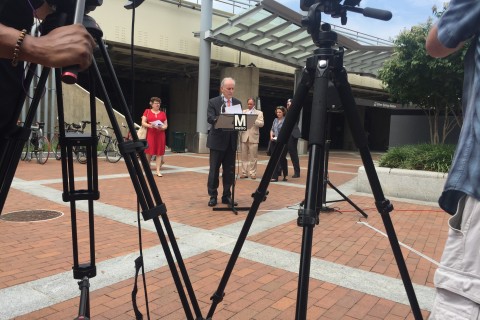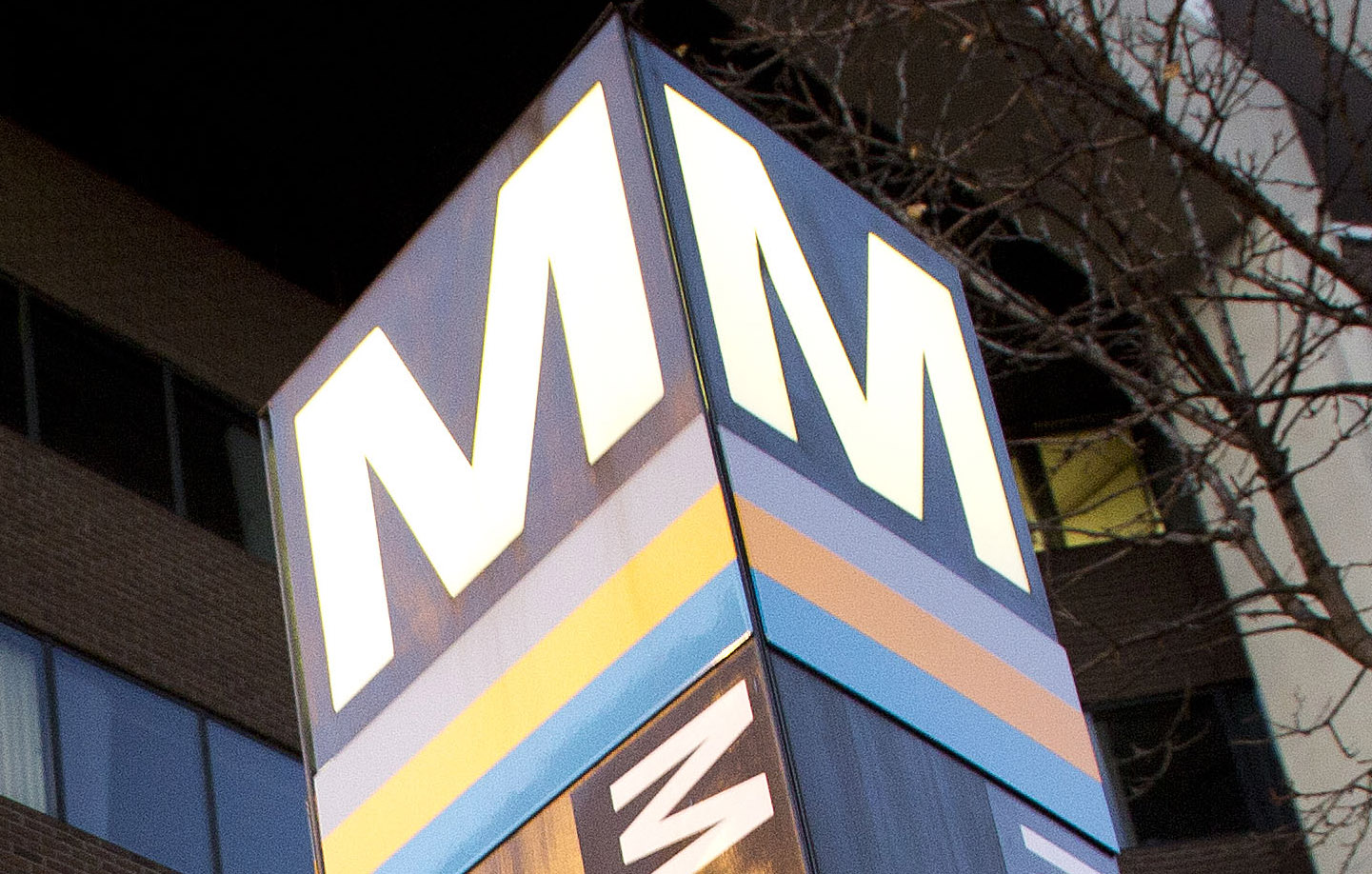WASHINGTON — A group of 40 Maryland elected leaders is asking Metro General Manager Paul Wiedefeld to reconsider a proposal to cut back late-night and weekend service permanently.
“As elected officials from Montgomery County and Prince George’s County in Maryland, we are extremely concerned about the long-term effect of the service changes you have proposed,” the group wrote in a letter sent to Wiedefeld Thursday.
“Many of us have accepted your actions as tough but necessary medicine for the system. Despite that, we would urge you to reconsider your recent proposal to permanently end late-night weekend hours and standard Sunday service,” the letter said, referencing 24/7 track work and other changes.
The proposal would close the system at 10 p.m. on Sundays, which in many cases would mean last train departures closer to 9 p.m. The Metro Board is expected to set public hearings this fall.
“Perhaps there are alternative options that can maintain late-night weekend and standard Sunday night service such as temporary spot closures (the entire system cannot be worked on at once); express service that skips some stations and single tracks around maintenance areas; or focusing service on an outbound basis after a certain hour,” the letter suggests.
It is a criticism that was raised when Wiedefeld released the proposal in July.
The six Maryland state senators, 24 state delegates, four Montgomery County council members, the mayors and two council members from each Rockville and Takoma Park and Maryland Black Mayors, Inc. write that their main concerns are for people who work late-night shifts, the risk to public safety from increased drunk driving, and the negative impact on mixed-use developments around Metro station that rely on round-the-clock service.
“For these transit-oriented developments (‘TOD’) to reach their potential, the transit in TOD cannot just be a ‘commuter system’ to get workers to and from office buildings for 9-5 jobs, but a ‘lifestyle system’ that allows for reliable transportation for recreation and non-traditional work hours,” the letter said.
Wiedefeld has said he must prioritize the times when more people are riding — the morning and afternoon weekday rush.
Also, he has cited the decline in late-night ridership on Metro over the last several years as a reason to make the service cuts to provide more unfettered access for track workers.
“Just as total Metro ridership is in decline due to poor service … late night service is declining for the same reason,” the letter responded. “Just as Metro expects total ridership to increase as the system improves, the same will be true of late night service.”
Metro began closing at midnight on weekends in June, under a temporary order from Wiedefeld that he said he had the authority to issue for up to a year. He made it clear then that he believed the closures should remain.
The new letter to Wiedefeld challenges claims that Uber, Lyft and similar services make Metro no longer necessary for late-nights or weekends. The letter cites the much higher cost of a ride on those services or a cab compared to Metro.
While addressed to Wiedefeld, the letter also was sent to Maryland’s Metro Board members, Gov. Larry Hogan, Transportation Secretary Pete Rahn and other transportation leaders.
Read the full letter:
Letter from Maryland Officials to WMATA on Late Night Service Hours by David Moon on Scribd







